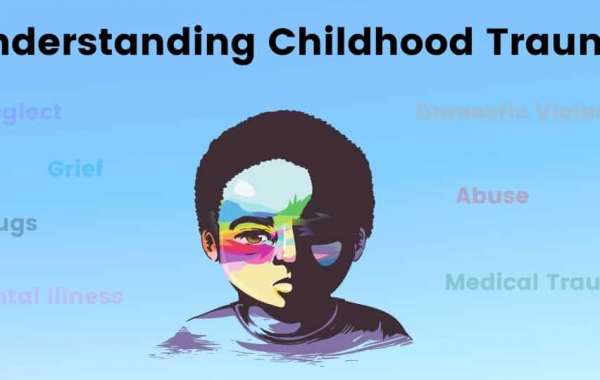If you or a loved one suffers from childhood trauma, you are not alone. It is common for people to turn to substances like alcohol and drugs to relieve their stress. However, many people are unaware of the connection between childhood trauma and addiction. Fortunately, treatment is available for both problems. Here are some ways to combat both issues, and reduce your risk for addiction. If you are one of those people, learn more about the benefits of a trauma and addiction treatment program.
Treatment options
Treatment options for childhood trauma and addiction include both group and individual therapies. Group therapies involve a counselor and other professionals who help people develop positive coping mechanisms. Individual therapy focuses on the individual's experience, while family and community services tackle the underlying cause of childhood trauma. Family therapy, however, may be more effective for many people. The Mayo Clinic has recommendations for building resiliency at home. For individuals struggling with addiction, the focus of treatment must be on the mind, body, and spirit.
The most common types of childhood trauma are child abuse and neglect, but other situations can result in similar long-term effects. Witnessing violence or mental illness as a child can also evoke childhood trauma, compromising a child's ability to deal with it. Childhood trauma can lead to addiction and other behavioral problems in adulthood. When children are unable to overcome the trauma in their own lives, these problems can persist, causing the child to become a dangerous and destructive alcoholic or to engage in compulsive behavior.
Preventing childhood trauma
According to a study conducted by the Centers for Disease Control and Prevention (CDC) and Kaiser Permanente's Health Appraisal Clinic, preventing childhood trauma could improve health for a lifetime. By doing so, people could lower their risk of developing five of the top killers in the United States: substance use disorders, mental health problems, and chronic diseases. Researchers have identified a list of trauma-inducing events known as ACEs, and they found that exposure to these events was also associated with a predisposition to addiction.
In addition to substance abuse, childhood trauma can include neglect, the death of a parent, or witnessing violence or mental illness. These adverse experiences increase a person's susceptibility to substance abuse and other behavioral addictions. Children exposed to such adversity are more likely to develop problems like compulsive eating and sexual behavior. Fortunately, there are ways to prevent this from happening to them. There are many methods available for parents and health professionals to intervene in these cases.
Reducing the risk of addiction
Research shows that children who have experienced traumatic childhood events are at greater risk for substance abuse. The incidence of addiction increases two to fourfold with each ACE. However, the risk increases even higher for those with five or more ACEs. In addition, traumatic childhood experiences can lead to compulsive eating and sexual behavior. Treatment for childhood trauma should focus on improving these maladaptive coping mechanisms.
Research shows that children who have undergone four or more traumatic experiences are five times more likely to develop addiction, sixty percent more likely to become obese, and 46 times more likely to use injection drugs. This makes it imperative that early intervention services are available to help prevent substance abuse. However, while early intervention is important, the emotional dysregulation associated with childhood trauma continues to influence an individual's susceptibility to substance abuse.
Reducing the negative long term effects
Often, our children are affected by trauma or addiction when they are young. These children may show signs of being detached from reality and may engage in risky behaviors such as unsafe sexual practices. Children who have experienced trauma or addiction may also exhibit high-risk behavior, such as illegal activity or involvement in the juvenile justice system. However, if the child's traumatic experiences are not addressed in time, they may have negative long term effects.
Children exposed to prolonged stress and adversity have higher rates of mental health problems, and they are more likely to engage in risky behaviors. They are also more likely to become involved in violent relationships. Children with traumatic experiences tend to have lower self-esteem than children without trauma. While the physical effects of childhood trauma often resolve by adolescence, emotional problems can persist into adulthood.








